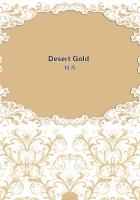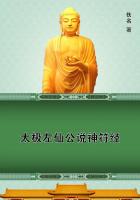The inadequacy of the previous conception of Communism, both the ****** French equalitarian Communism and that of Weitling, became more and more clear to them.The tracing of Communism back to primitive Christianity introduced by Weitling -- no matter how brilliant certain passages to be found in his _Gospel of Poor Sinners_ -- had resulted in delivering the movement in Switzerland to a large extent into the hands, first of fools like Albrecht, and then of exploiting fake prophets like Kuhlmann.The "true Socialism" dealt in by a few literary writers -- a translation of French socialist phraseology into corrupt Hegelian German, and sentimental love dreaming (see the section on German of "True" Socialism in the _Communist Manifesto__ -- that Kriege and the study of the corresponding literature introduced in the League was found soon to disgust the old revolutionaries of the league, if only because of its slobbering feebleness.As against the untenability of the previous theoretical views, and as against the practical aberrations resulting therefrom, it was realized more and more in London that Marx and I were right in our new theory.This understanding was undoubtedly promoted by the fact that among the London leaders there were now two men who were considerably superior to those previously mentioned in capacity for theoretical knowledge: the miniature painter Karl Pfander from Heilbronn and the tailor Georg Eccarius from Thuringia.
[Engels footnote: Pfander died about eight years ago in London.he was a man of peculiarly fine intelligence, witty, ironical and dialectical.
Eccarius, as we know, was later for many years Secretary of the General Council of the International Working Men's Association, in the General Council of which the following old League members were to be found, among others: Eccarius, Pfander, Lessner, Lochner, Marx and myself.
Eccarius subsequently devoted himself exclusively to the English trade union movement.]
It suffices to say that in the spring of 1847 Moll visited Marx in Brussels and immediately afterwards me in Paris, and invited us repeatedly, in the name of his comrades, to enter the League.He reported that they were as much convinced of the general correctness of our mode of outlook as of the necessity of freeing the League from the old conspiratorial traditions and forms.Should we enter, we would be given an opportunity of expounding our critical Communism before a congress of the League in a manifesto, which would then be published as the manifesto of the League; we would likewise be able to contribute our quota towards the replacement of the obsolete League organization by one in keeping with the new times and aims.
We entertained no doubt that an organization within the German working class was necessary, if only for propaganda purposes, and that this organization, in so far as it would not be merely local in character, could only be a secret one, even outside Germany.Now, there already existed exactly such an organization in the shape of the League.
What we previously objected to in this League was now relinquished as erroneous by the representatives of the League themselves; we were even invited to co-operate in the work of reorganization.Could we say no?
Certainly not.Therefore, we entered the League; Marx founded a League community in Brussels from among our close friends, while I attended the three Paris communities.
In the summer of 1847, the first league Congress took place in London, at which W.Wolff represented the Brussels and I the Paris communities.At this congress the reorganization of the League was carried through first of all.Whatever remained of the old mystical names dating back to the conspiratorial period was now abolished; the League now consisted of communities, circles, leading circles, a Central Committee and a Congress, and henceforth called itself the "Communist League".
"The aim of the League is the overthrow of the bourgeoisie, the rule of the proletariat, the abolition of the old, bourgeois society based on class antagonisms and the foundation of a new society without classes and without private property"-- thus ran the first article.The organization itself was thoroughly democratic, with elective and always removable boards.This alone barred all hankering after conspiracy, which requires dictatorship, and the League was converted -- for ordinary peace times at least -- into a pure propaganda society.These new Rules were submitted to the communities for discussion -- so democratic was the procedure now followed -- then once again debated at the Second Congress and finally adopted by the latter on December 8, 1847.They are to be found reprinted in Wermuth and Stieber, vol.I, p.239, Appendix X.
The Second Congress took place during the end of November and beginning of December of the same year.Marx also attended this time and expounded the new theory in a fairly long debate -- the congress lasted at least ten days.All contradiction and doubt were finally set at rest, the new basic principles were unanimously adopted, and Marx and I were commissioned to draw up the Manifesto.This was done immediately afterwards.A few weeks before the February Revolution it was sent to London to be printed.Since then it has travelled round the world, has been translated into almost all languages and today still serves in numerous countries as a guide for the proletarian movement.In place of the old League motto, "All Men Are Brothers", appeared the new battle cry, "Working Men of All Countries, Unite!" which openly proclaimed the international character of the struggle.Seventeen years later this battle cry resounded throughout the world as the watchword of the International Working Men's Association, and today the militant proletariat of all countries has inscribed it in its banner.















